Table of Contents
Introduction
In a world where health and wellness trends are constantly evolving, one beverage category has been steadily gaining popularity: high-calorie smoothies. As we enter 2024, the demand for nutrient-dense, convenient, and tasty meal replacements continues to grow. Among these, 1000 calorie smoothies have emerged as a powerhouse option for those looking to boost their calorie intake, support muscle gain, or simply enjoy a filling and nutritious drink.
According to recent market research, the global smoothie market is expected to grow annually by 7.4% from 2020 to 2025. This growth is partly attributed to the rising interest in functional beverages that offer more than just hydration. High-calorie smoothies, in particular, have caught the attention of fitness enthusiasts, athletes, and individuals looking to gain weight in a healthy manner.
In this comprehensive guide, we’ll explore the world of 1000 calorie smoothies, diving into their benefits, key ingredients, and how to craft the perfect high-energy drink. Whether you’re a hardgainer trying to bulk up, an athlete needing to refuel after intense workouts, or someone simply looking to add more nutrient-dense calories to their diet, this article will provide you with all the information you need to make delicious and effective 1000 calorie smoothies.
So, grab your blender and get ready to discover the art and science behind these powerhouse beverages that are revolutionizing the way we think about liquid nutrition.
Understanding 1000 Calorie Smoothies
1000 calorie smoothies are high-energy drinks designed to provide a significant amount of calories and nutrients in a convenient, easily digestible form. These smoothies have gained popularity among individuals looking to gain weight, build muscle mass, or meet increased caloric needs due to high activity levels or medical conditions.
What are 1000 calorie smoothies?
1000 calorie smoothies are nutrient-dense beverages that pack a substantial amount of calories into a single serving. They typically combine a variety of ingredients such as fruits, vegetables, protein sources, healthy fats, and calorie-dense add-ins to reach the 1000 calorie mark. Unlike regular smoothies that might contain 200-400 calories, these high-calorie versions are specifically formulated to provide a significant boost in energy and nutrition.
Who can benefit from 1000 calorie smoothies?
Several groups of people may find 1000 calorie smoothies particularly beneficial:
- Individuals trying to gain weight: For those who struggle to consume enough calories through regular meals, these smoothies can be an effective way to increase caloric intake.
- Athletes and bodybuilders: High-intensity training and muscle-building require increased calorie consumption, which these smoothies can help meet.
- People recovering from illness or surgery: During recovery, the body often needs extra calories and nutrients to heal and regain strength.
- Individuals with high metabolisms: Some people naturally burn calories at a higher rate and may need additional caloric intake to maintain or gain weight.
- Those with decreased appetites: For individuals who have trouble eating large meals, smoothies can provide necessary calories without causing discomfort.
Nutritional composition of 1000 calorie smoothies
A well-balanced 1000 calorie smoothie typically includes:
- Protein: 30-50 grams
- Carbohydrates: 100-150 grams
- Fats: 30-50 grams
These macronutrients are sourced from a variety of ingredients. For example:
- Protein sources: Greek yogurt, protein powder, nut butters, or silken tofu
- Carbohydrate sources: Fruits, oats, honey, or fruit juices
- Fat sources: Avocado, coconut oil, nuts, or seeds
Additionally, these smoothies often contain a wealth of micronutrients from fruits and vegetables, including vitamins, minerals, and antioxidants.
According to recent market research, the global smoothie market is expected to grow annually by 7.4% from 2020 to 2025, indicating a rising interest in nutrient-dense, convenient beverages like 1000 calorie smoothies.
It’s important to note that while 1000 calorie smoothies can be a valuable tool for weight gain or meeting high caloric needs, they should be consumed as part of a balanced diet and under the guidance of a healthcare professional or registered dietitian. In the following sections, we’ll explore the key ingredients, benefits, and potential considerations when incorporating these high-calorie smoothies into your diet.
Key Ingredients for a 1000 Calorie Smoothie
Creating a 1000 calorie smoothie requires careful selection of nutrient-dense, calorie-rich ingredients. The goal is to pack in calories without making the smoothie too large in volume, which could make it difficult to consume. Here are the essential components and some top ingredients to consider:
Protein Sources
Protein is crucial for muscle growth and repair, and it helps create a feeling of fullness. Aim for about 30-50 grams of protein in your 1000 calorie smoothie.
Top protein sources include:
- Whey protein powder: A fast-absorbing protein, ideal for muscle building
- Casein protein powder: Slower digesting, great for sustained protein release
- Greek yogurt: Provides protein and a creamy texture
- Silken tofu: A versatile plant-based protein option
- Nut butters: Offer protein along with healthy fats
Carbohydrate Sources
Carbohydrates provide energy and help to bulk up the calorie content. Aim for 100-150 grams of carbs in your smoothie.
Excellent carb sources include:
- Bananas: Add sweetness and a creamy texture
- Oats: Provide fiber and help thicken the smoothie
- Honey or maple syrup: Natural sweeteners that add calories
- Dried fruits: Concentrated sources of carbs and natural sugars
Healthy Fat Sources
Fats are the most calorie-dense macronutrient, providing 9 calories per gram. Include 30-50 grams of fat in your smoothie for a significant calorie boost.
Great fat sources include:
- Avocado: Adds creaminess and heart-healthy monounsaturated fats
- Coconut oil or MCT oil: Provides easily digestible fats
- Chia seeds or flaxseeds: Offer omega-3 fatty acids and fiber
- Full-fat coconut milk: Adds richness and tropical flavor
Fruits and Vegetables
While not as calorie-dense, fruits and vegetables are essential for providing vitamins, minerals, and antioxidants. They also enhance the flavor and nutritional profile of your smoothie.
Consider adding:
- Berries: High in antioxidants
- Mangoes or pineapples: Add tropical sweetness
- Spinach or kale: Boost nutrient content without affecting taste significantly
Liquid Base
The liquid base helps blend all ingredients and can contribute to the calorie count. Options include:
- Whole milk: For those who tolerate dairy
- Plant-based milks: Such as soy milk or oat milk for added protein and calories
- Fruit juices: For extra carbs and flavor
Calorie Boosters
To reach the 1000 calorie mark, you might need to add some extra calorie-dense ingredients:
- Granola: Adds crunch and extra calories
- Dark chocolate: For antioxidants and indulgent flavor
- Coconut flakes: Unsweetened for healthy fats and texture
According to a 2024 trend report from Healthline, “functional beverages” like high-calorie smoothies are gaining popularity, with consumers looking for drinks that offer more than just hydration. This trend aligns with the growing interest in 1000 calorie smoothies for their nutritional benefits and convenience.
How to Make a 1000 Calorie Smoothie
Ingredients and Directions:
1000 Calorie Smoothie
Course: beverage.Cuisine: AmericanDifficulty: Easy1
servings5
minutes5
minutesTo make this delicious smoothie, you’ll need:
Ingredients
1 cup whole milk
1 cup Greek yogurt
1 banana
1 cup mixed berries (frozen)
1/4 cup rolled oats
2 tbsp almond butter
1 scoop protein powder (vanilla or unflavored)
1 tbsp chia seeds
Directions
- Add all ingredients to a high-powered blender, and Blend on high speed until smooth and creamy, about 1-2 minutes, If the smoothie is too thick, add more milk or water until desired consistency is reached.
Nutrition Facts
1 servings per container
Calories1000
- Amount Per Serving% Daily Value *
- Total Fat
35g
54%
- Amount Per Serving% Daily Value *
- Total Carbohydrate
140g
47%
- Dietary Fiber 15g 60%
- Protein 55g 111%
* The % Daily Value tells you how much a nutrient in a serving of food contributes to a daily diet. 2,000 calories a day is used for general nutrition advice.
5 Delicious 1000 Calorie Smoothie Recipes
Now that we understand the key components of a 1000 calorie smoothie, let’s explore some tasty recipes that combine these ingredients in delicious ways. These recipes are designed to not only meet your calorie goals but also provide a balance of nutrients to support overall health and wellness.
1. Chocolate Peanut Butter Banana Blast
This indulgent smoothie tastes like a dessert but packs a serious nutritional punch.
Ingredients:
- 2 medium bananas
- 2 scoops chocolate whey protein powder
- 3 tablespoons peanut butter
- 1 cup whole milk
- 1/2 cup rolled oats
- 1 tablespoon honey
- 1 tablespoon chia seeds
- 1 cup ice
Instructions: Blend all ingredients until smooth. This smoothie provides approximately 1020 calories, 65g protein, 110g carbohydrates, and 45g fat.
2. Tropical Green Goddess
This vibrant smoothie is loaded with fruits, veggies, and healthy fats for a nutritious calorie boost.
Ingredients:
- 1 ripe avocado
- 1 cup mango chunks
- 1 cup pineapple chunks
- 2 cups spinach
- 1 scoop vanilla pea protein powder
- 1 cup full-fat coconut milk
- 1/4 cup coconut oil
- 1 tablespoon honey
- 1 cup ice
Instructions: Blend all ingredients until smooth and creamy. This smoothie provides approximately 1050 calories, 30g protein, 80g carbohydrates, and 80g fat.
3. Oatmeal Cookie Protein Shake
This smoothie tastes like your favorite cookie but is packed with protein and healthy carbs.
Ingredients:
- 1 cup rolled oats
- 2 scoops vanilla whey protein powder
- 2 tablespoons almond butter
- 1 medium banana
- 1 cup whole milk
- 1/4 cup Greek yogurt
- 1 tablespoon maple syrup
- 1/2 teaspoon cinnamon
- 1 cup ice
Instructions: Blend all ingredients until smooth. This smoothie provides approximately 1010 calories, 70g protein, 120g carbohydrates, and 35g fat.
4. Berry Nutty Blast
This antioxidant-rich smoothie combines the goodness of berries with the protein and healthy fats from nuts.
Ingredients:
- 2 cups mixed berries (strawberries, blueberries, raspberries)
- 1 scoop vanilla whey protein powder
- 1/2 cup raw cashews
- 1/4 cup almonds
- 2 tablespoons chia seeds
- 1 cup Greek yogurt
- 1 cup whole milk
- 1 tablespoon honey
- 1 cup ice
Instructions: Blend all ingredients until smooth. This smoothie provides approximately 1030 calories, 55g protein, 85g carbohydrates, and 60g fat.
5. Chocolate Cherry Cheesecake Smoothie
This decadent smoothie tastes like dessert but is packed with nutrients.
Ingredients:
- 2 cups frozen cherries
- 1 scoop chocolate casein protein powder
- 1/2 cup cottage cheese
- 1/4 cup cream cheese
- 1 tablespoon cocoa powder
- 1 tablespoon almond butter
- 1 cup whole milk
- 1 tablespoon honey
- 1 cup ice
Instructions: Blend all ingredients until smooth and creamy. This smoothie provides approximately 1000 calories, 60g protein, 95g carbohydrates, and 50g fat.
According to a recent study published in the Journal of the International Society of Sports Nutrition in 2024, consuming high-calorie protein shakes like these can effectively support weight gain and muscle growth when combined with resistance training. The study found that participants who consumed similar shakes gained an average of 2.5 kg of lean muscle mass over a 12-week period, compared to 1.2 kg in the control group.
How to Incorporate 1000 Calorie Smoothies into Your Diet
While 1000 calorie smoothies can be an effective tool for weight gain or meeting high caloric needs, it’s important to incorporate them into your diet strategically. Here are some tips and considerations to help you make the most of these high-calorie beverages:
Timing Your Smoothie Consumption
The timing of when you drink your 1000 calorie smoothie can impact its effectiveness:
- As a meal replacement: These smoothies can serve as a complete meal, especially for breakfast or lunch. They provide a balanced mix of macronutrients and can be more convenient than preparing a full meal.
- Post-workout: Consuming a high-calorie smoothie after exercise can help replenish energy stores and support muscle recovery and growth.
- Before bed: A smoothie with casein protein can provide a slow-release of amino acids throughout the night, supporting muscle recovery and growth while you sleep.
- Between meals: If you struggle to eat large meals, sipping on a high-calorie smoothie between regular meals can help increase your overall calorie intake.
Balancing with Other Meals
While 1000 calorie smoothies are nutrient-dense, they shouldn’t replace all your solid food intake. Here’s how to balance them with your regular diet:
- Maintain variety: Continue to eat a variety of whole foods to ensure you’re getting a wide range of nutrients.
- Don’t neglect fiber: While smoothies can contain fiber, it’s important to also consume whole fruits, vegetables, and grains for adequate fiber intake.
- Monitor total calorie intake: If your goal is weight gain, add the smoothie on top of your regular diet. If you’re maintaining weight, you may need to adjust other meals to accommodate the extra calories.
Customization and Progression
Everyone’s nutritional needs are different, and they may change over time:
- Start gradually: If you’re not used to high-calorie smoothies, start with a smaller portion and gradually increase to the full 1000 calories.
- Adjust ingredients: Modify the recipes based on your preferences and nutritional needs. For example, you might increase protein content for muscle building or add more healthy fats for sustained energy.
- Track progress: Monitor your weight, energy levels, and overall health. Adjust your smoothie intake accordingly.
Potential Considerations and Precautions
While 1000 calorie smoothies can be beneficial, there are some factors to keep in mind:
- Digestive comfort: Some people may experience bloating or discomfort when consuming large liquid meals. If this occurs, try spreading your smoothie consumption throughout the day.
- Blood sugar levels: The high carbohydrate content may affect blood sugar. If you have diabetes or blood sugar concerns, consult with a healthcare provider.
- Dental health: Frequent consumption of sweet smoothies may impact dental health. Remember to maintain good oral hygiene.
- Quality over quantity: While the goal is high calories, prioritize nutrient-dense, whole food ingredients over empty calories.
According to a 2024 survey by the International Food Information Council, 65% of consumers are interested in functional beverages that offer benefits beyond basic nutrition. This trend aligns with the growing popularity of nutrient-dense, high-calorie smoothies for specific health and fitness goals.



Frequently Asked Questions About 1000 Calorie Smoothies
As 1000 calorie smoothies gain popularity, many people have questions about their use, benefits, and potential drawbacks. Let’s address some of the most common queries:
1. Are 1000 calorie smoothies healthy?
When made with nutrient-dense whole foods, 1000 calorie smoothies can be a healthy addition to your diet. They provide a concentrated source of vitamins, minerals, and macronutrients. However, the healthiness depends on the ingredients used and your individual nutritional needs.
A 2024 study in the Journal of Nutrition found that individuals consuming nutrient-dense, high-calorie smoothies as part of a balanced diet showed improvements in overall nutrient intake compared to those who didn’t. However, it’s crucial to ensure these smoothies complement, rather than replace, a varied whole-food diet.
2. Can 1000 calorie smoothies help with weight gain?
Yes, 1000 calorie smoothies can be an effective tool for weight gain. To gain weight, you need to consume more calories than you burn. These high-calorie smoothies make it easier to increase your caloric intake, especially if you struggle with eating large meals or have a poor appetite.
3. How often should I drink a 1000 calorie smoothie?
The frequency depends on your individual calorie needs and goals. Some people might benefit from one smoothie daily, while others might only need them occasionally. It’s best to consult with a registered dietitian to determine the right frequency for your specific situation.
4. Can I use 1000 calorie smoothies for weight loss?
While these smoothies are designed for weight gain, some people use meal replacement smoothies for weight loss. However, a 1000 calorie smoothie would likely be too high in calories for most weight loss plans. If you’re looking to lose weight, consider lower-calorie smoothie options or consult with a dietitian for personalized advice.
5. Are there any side effects of drinking high-calorie smoothies?
Some potential side effects may include:
- Digestive discomfort or bloating, especially if consumed too quickly
- Potential blood sugar spikes due to high carbohydrate content
- Unintended weight gain if not accounting for the additional calories in your overall diet
6. Can I make 1000 calorie smoothies vegan?
Absolutely! Many high-calorie, nutrient-dense ingredients are plant-based. Use ingredients like plant-based protein powders, nut butters, avocados, coconut milk, and a variety of fruits to create vegan 1000 calorie smoothies.
7. How long can I store a 1000 calorie smoothie?
For best quality and safety, consume your smoothie immediately after preparation. If needed, you can store it in an airtight container in the refrigerator for up to 24 hours. Be sure to shake well before drinking as separation may occur.
8. Can children or teenagers drink 1000 calorie smoothies?
While these smoothies can be nutrient-dense, 1000 calories in one serving is likely too much for most children or teenagers. It’s best to consult with a pediatrician or registered dietitian for appropriate nutrition advice for young people.
9. Do I need special equipment to make these smoothies?
A good quality blender is essential for creating smooth, well-mixed 1000 calorie smoothies. High-powered blenders can better handle ingredients like nuts, seeds, and frozen fruits. However, many standard blenders can still produce good results, especially if you soak harder ingredients beforehand.
10. Can 1000 calorie smoothies replace meals?
These smoothies can occasionally replace meals due to their high calorie and nutrient content. However, it’s generally recommended to use them as a supplement to, rather than a replacement for, whole food meals to ensure a varied diet and adequate fiber intake.
According to a 2024 consumer survey by the Smoothie and Juice Association, 78% of regular smoothie drinkers reported feeling more satisfied and energized when consuming nutrient-dense, higher-calorie smoothies compared to traditional fruit-only smoothies. This indicates a growing awareness and appreciation for the potential benefits of calorie-rich, balanced smoothies.
Conclusion: Harnessing the Power of 1000 Calorie Smoothies
As we’ve explored throughout this article, 1000 calorie smoothies can be a powerful tool for those looking to increase their caloric intake in a nutritious and convenient way. Let’s recap the key points and consider the broader implications of incorporating these high-energy drinks into one’s diet.
Key Takeaways:
- Nutrient Density: 1000 calorie smoothies, when properly formulated, offer a concentrated source of essential nutrients, including proteins, healthy fats, complex carbohydrates, vitamins, and minerals.
- Versatility: These smoothies can be customized to suit various dietary needs and preferences, from vegan options to protein-packed post-workout shakes.
- Convenience: For those struggling to consume enough calories through solid foods, these smoothies provide an efficient way to boost caloric intake.
- Targeted Benefits: They can be particularly beneficial for athletes, those recovering from illness, individuals with high metabolisms, or anyone looking to gain weight healthily.
- Balance is Key: While these smoothies can be a valuable addition to one’s diet, they should complement, not replace, a varied whole-food diet.
Looking to the Future
The rising popularity of 1000 calorie smoothies reflects a broader trend in nutrition and wellness. According to a 2024 report by the Global Nutrition Trends Institute, there’s a growing interest in personalized nutrition solutions that cater to specific health goals and lifestyle needs. High-calorie, nutrient-dense smoothies fit well into this paradigm, offering a customizable approach to meeting individual nutritional requirements.
However, it’s crucial to approach these high-calorie beverages with mindfulness and expert guidance. As with any significant dietary change, it’s recommended to consult with a healthcare professional or registered dietitian before incorporating 1000 calorie smoothies into your regular routine. They can help ensure that these smoothies align with your overall health goals and nutritional needs.
Final Thoughts
1000 calorie smoothies represent an innovative approach to nutrition, blending the convenience of modern lifestyles with the power of nutrient-dense whole foods. When used appropriately, they can be an effective tool for weight gain, muscle building, recovery, and overall health improvement.
As we continue to understand more about personalized nutrition, tools like these high-calorie smoothies may play an increasingly important role in helping individuals meet their unique health and fitness goals. However, it’s important to remember that they are just one piece of the puzzle. A balanced diet, regular physical activity, adequate sleep, and overall healthy lifestyle choices all contribute to optimal health and well-being.
Whether you’re an athlete looking to fuel intense training sessions, someone recovering from illness, or simply aiming to increase your caloric intake, 1000 calorie smoothies offer a tasty, nutritious, and convenient option. By understanding their benefits, knowing how to create them effectively, and incorporating them wisely into your diet, you can harness their potential to support your health and nutrition goals. See my new website







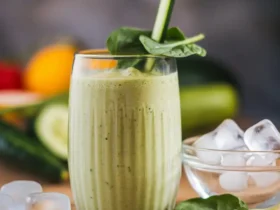
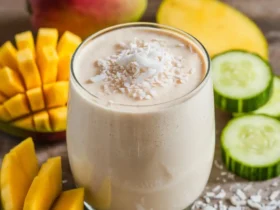
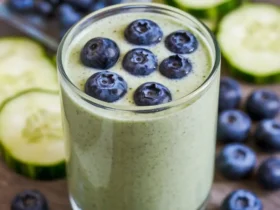
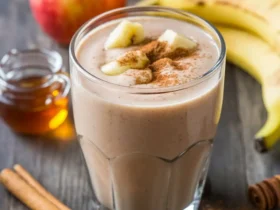
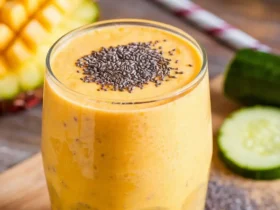
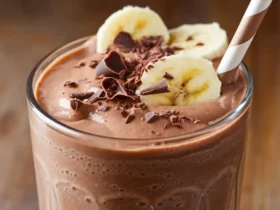
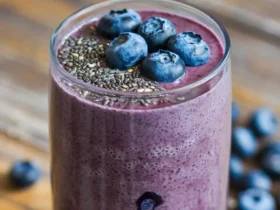
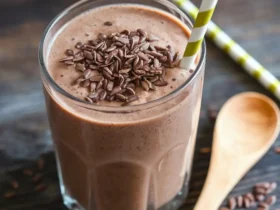
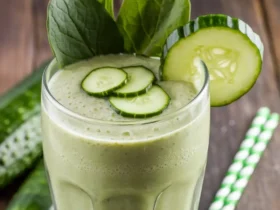
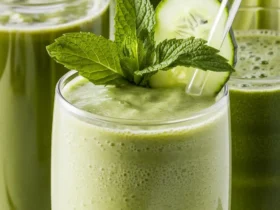
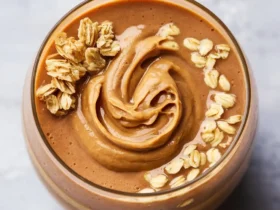
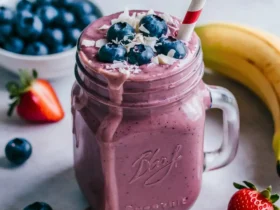
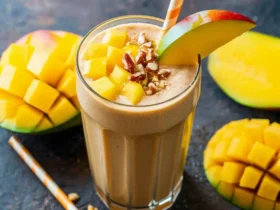
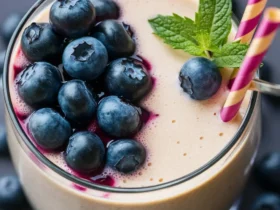
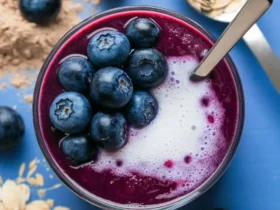
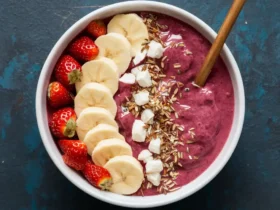
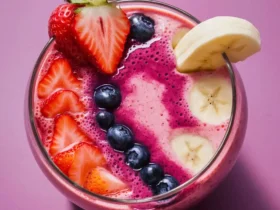
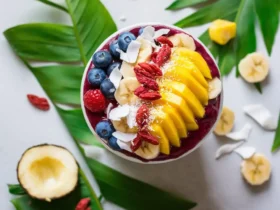
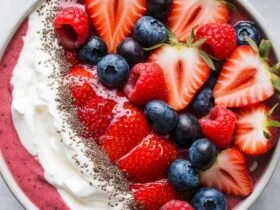
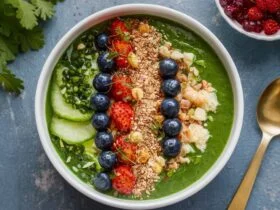
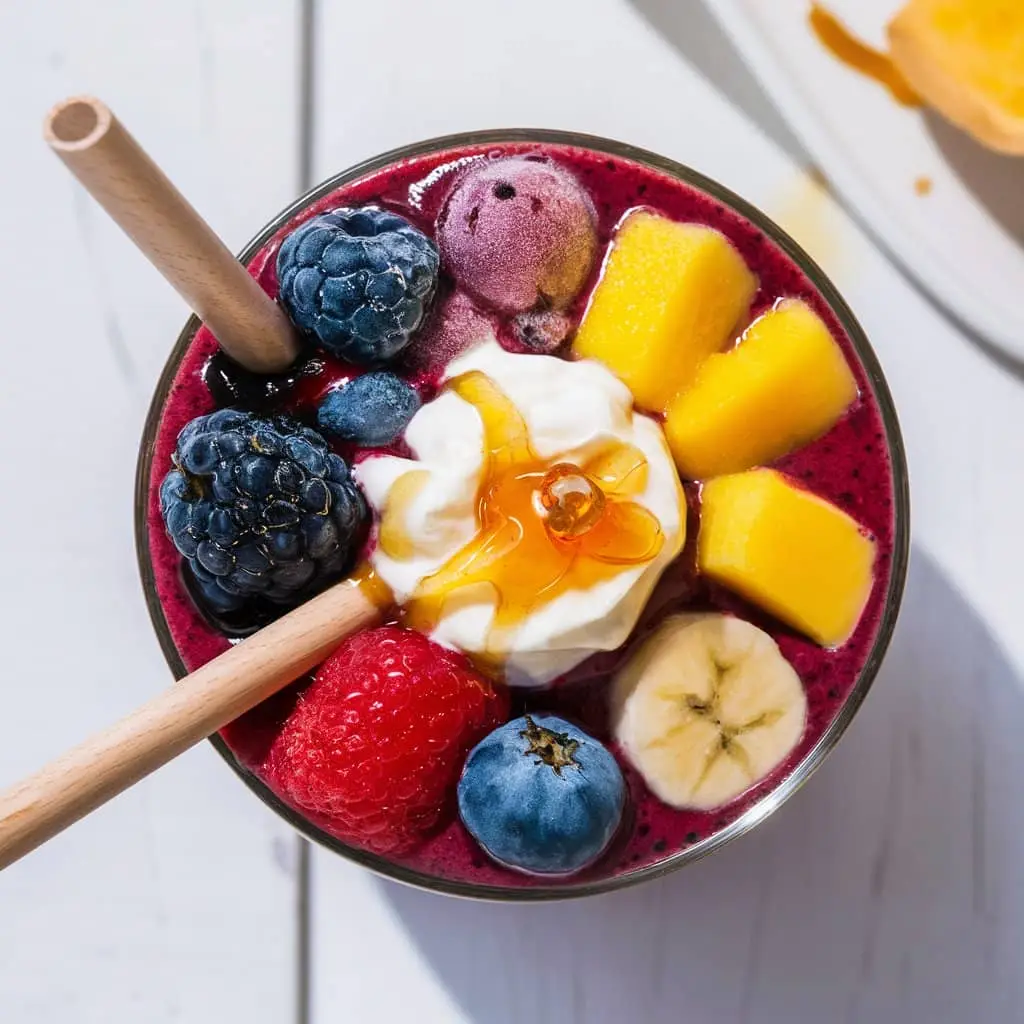
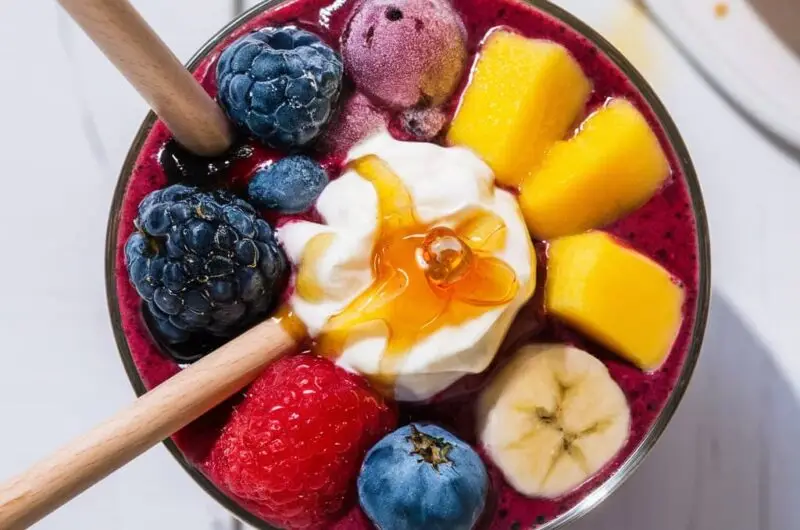

21 Comments